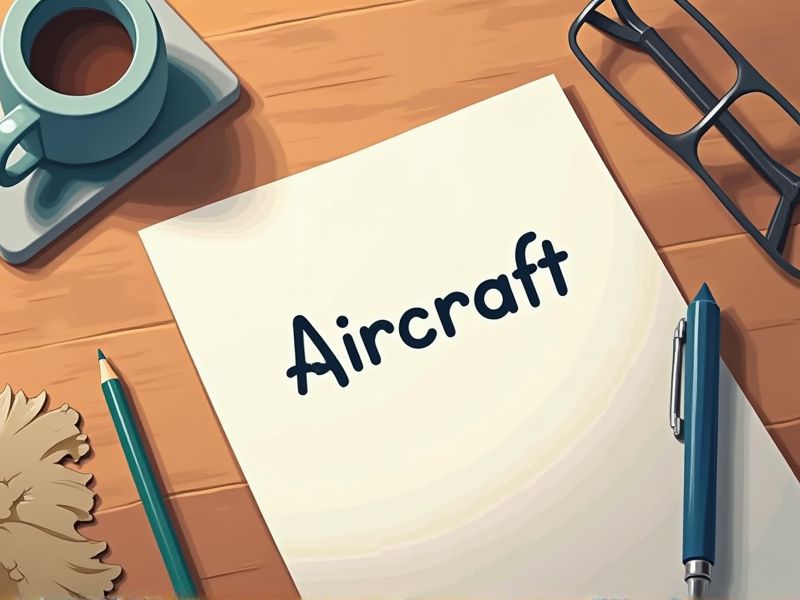
Aircraft mechanics ensure the safety and reliability of aircraft, which demands precise skills and a keen understanding of complex systems. Certifications validate a mechanic's expertise and compliance with industry standards, minimizing risks associated with maintenance errors. Regulatory bodies mandate specific certifications to ensure that mechanics are up-to-date with the latest technologies and safety protocols. Below are key certifications essential for an aircraft mechanic.
FAA Airframe & Powerplant (A&P) Certification
FAA Airframe & Powerplant (A&P) Certification is essential to ensure mechanics meet the industry's strict safety and performance standards required in aviation maintenance. Certification provides mechanics with a verified skill set, enabling them to efficiently conduct repairs and maintenance on various aircraft types. FAA mandates A&P certification to standardize competence across the industry, reducing the risk of maintenance-related aviation incidents. Certification also enhances career opportunities and credibility, often becoming a prerequisite for employment with airlines and maintenance facilities.
Inspection Authorization (IA) Certification
Inspection Authorization (IA) Certification is needed because it allows aircraft mechanics to conduct and approve major repairs and alterations, increasing safety in aviation. Without the IA Certification, mechanics would be restricted to simple repairs, which could delay aircraft availability and affect commercial operations. The certification also serves as an advanced credential, reflecting a mechanic's extensive knowledge and experience in the field. IA Certification helps regulatory bodies ensure that high standards are met, reducing the risk of aviation-related incidents.
FAA Avionics Technician Certification
Possessing an FAA Avionics Technician Certification ensures that an aircraft mechanic is recognized for expertise in maintaining and troubleshooting complex electronic systems. With this certification, mechanics can legally perform and sign off on avionics maintenance and installations, ensuring compliance with federal regulations. The credential often leads to expanded career opportunities and higher earning potential, reflecting the specialized skills acquired. Certified technicians contribute to enhanced safety and efficiency in aviation operations by adhering to the industry's rigorous standards.
EASA Part-66 Aircraft Maintenance Licence
The EASA Part-66 Aircraft Maintenance Licence is essential for aircraft mechanics because it certifies their competence to ensure aircraft safety and airworthiness. Possession of this license allows mechanics to perform and certify maintenance tasks, which in turn reduces the risk of accidents due to technical failures. It creates standardized procedures and regulations across Europe, ensuring that all mechanics work under consistent guidelines. This credential also enhances professional credibility and career opportunities for mechanics within the aviation industry.
EASA Polyvalent Maintenance Certification
The EASA Polyvalent Maintenance Certification ensures aircraft mechanics meet European safety and maintenance standards, promoting uniformity across the aviation industry. This certification enhances the mechanic's skill set, increasing job versatility by allowing them to work on multiple aircraft types. The rigorous training and assessment process associated with this certification improve maintenance quality, directly impacting aircraft safety and reliability. Recognition under EASA standards often leads to better career opportunities and professional growth worldwide.
OSHA Safety Certification
OSHA Safety Certification for aircraft mechanics is required to ensure adherence to safety protocols, reducing the likelihood of workplace accidents. Training in OSHA standards equips mechanics with knowledge of hazard identification and risk management, enhancing overall operational safety. Compliance with OSHA regulations can lead to fewer injuries, minimizing downtime and associated costs within aviation maintenance facilities. Certification demonstrates a commitment to safety, potentially influencing insurance premiums and regulatory inspections positively.
Hazardous Materials (HAZMAT) Handling Certification
HAZMAT Handling Certification ensures that aircraft mechanics are equipped with the necessary knowledge to safely manage and dispose of dangerous substances, mitigating potential environmental and health risks. Without proper certification, mechanics may inadvertently mishandle materials such as fuel and hydraulic fluids, leading to safety hazards and regulatory noncompliance. The certification process also helps standardize procedures across the industry, minimizing the likelihood of accidents due to inconsistent practices. Regulations and guidelines from organizations like the FAA and OSHA often mandate certification to maintain operational and safety standards within the aviation sector.
IATA Dangerous Goods Regulations (DGR) Certification
IATA Dangerous Goods Regulations (DGR) Certification ensures an aircraft mechanic understands how to safely handle hazardous materials, minimizing the risk of accidents. It prevents regulatory violations by ensuring compliance with international safety standards. Knowledge from this certification protects passengers, crew, and cargo from potential hazards linked to improper handling or transportation of dangerous goods. Aircraft mechanics with this certification contribute to reducing potential legal and financial liabilities for airlines.
AS9100 Quality Management Systems Certification
AS9100 certification integrates standards for quality management systems in aerospace, enhancing safety and reliability. Obtaining this certification ensures that an aircraft mechanic adheres to stringent industry requirements, reducing the risk of errors. With AS9100, mechanics incorporate consistent processes that lead to improved efficiency and customer satisfaction. It also boosts a mechanic's credibility and competitiveness in securing contracts within the aerospace sector.
Lean Six Sigma Certification
Lean Six Sigma Certification equips aircraft mechanics with techniques to reduce waste and improve efficiency, leading to cost savings. Efficient processes reduce downtime in aircraft maintenance, enhancing reliability and customer satisfaction. Understanding data-driven decision-making through this certification allows mechanics to identify and mitigate potential issues before they escalate. Standardized processes from Lean Six Sigma ensure consistent quality in maintenance work, critical for safety and regulatory compliance.
Summary
With certifications, you enhance your credibility and become more attractive to employers seeking skilled aircraft mechanics. This often translates to higher earning potential, as certified professionals are valued for their specialized knowledge and expertise. As you gain certifications, your career advancement opportunities expand significantly, opening doors to supervisory and specialized roles. Overall, your job security improves since certifications demonstrate commitment to industry standards and continuous learning.
